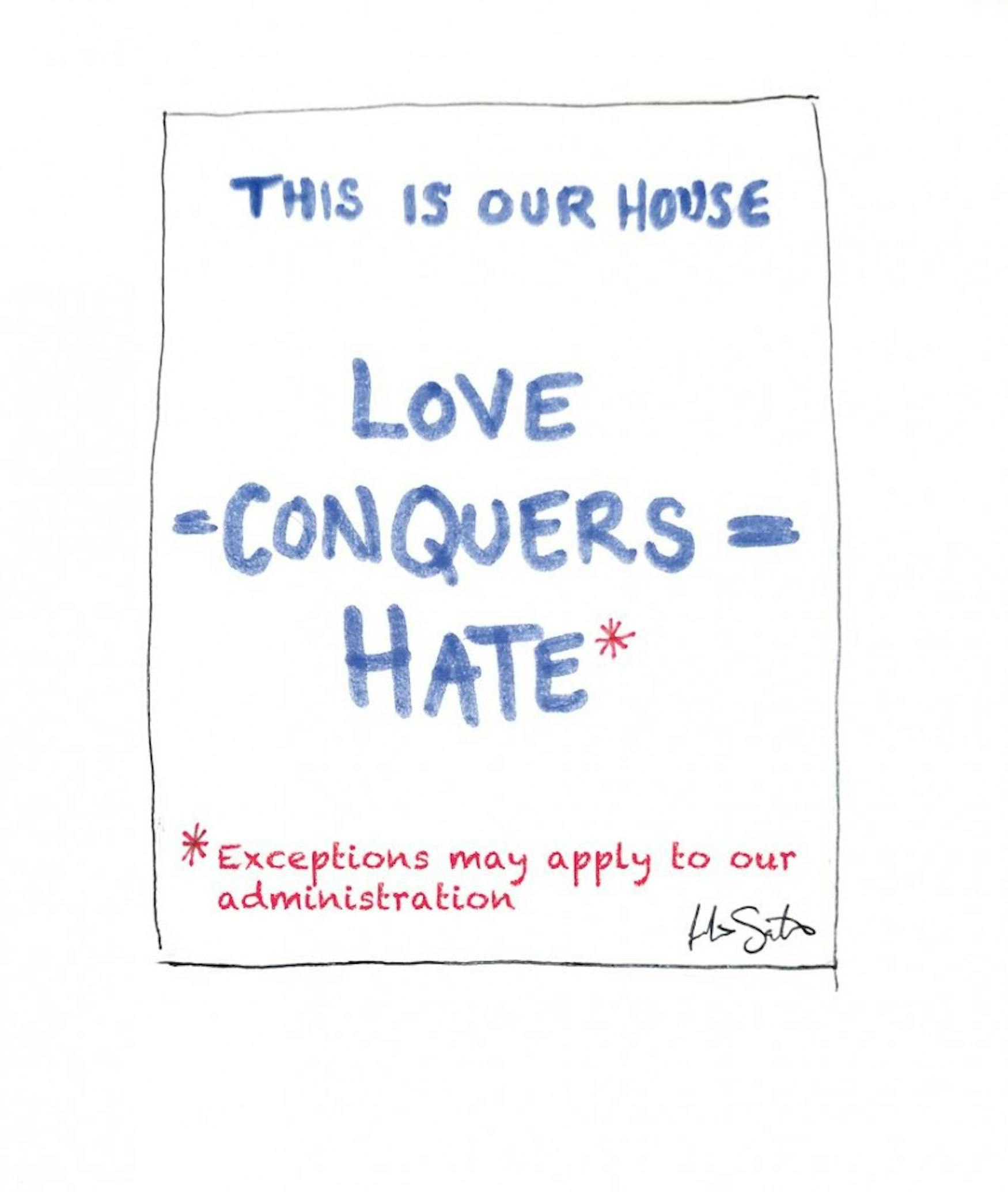Editorial: Consider the University's attempts to curb abuse
On Sept. 4, University President Ron Liebowitz sent an email to the Brandeis community with an update on the independent investigation into the abusive environment created within the University’s basketball program. While the initiatives the University has set out on to curtail the behavior that allowed for such gross misconduct are a good start, more should be done to make sure that this kind of abuse is not repeated.
The investigation began after the dismissal of longtime basketball coach Brian Meehan, who had fostered a racially and emotionally abusive environment within his team and program. The investigation resulted in the demotion of Athletic Director Lynne Dempsey and Vice President of Human Resources Robin Nelson-Bailey, as well as the resignation of Sheryl Sousa, the vice president of Student Affairs.
In addition to spurring leadership changes, the investigators’ report delineates nine recommendations to reform the University’s administrative processes. All nine proposals have the same principal goal: ensuring the safety of students by giving them avenues to report any wrongdoings, and giving staff the proper training to intervene in instances of bias or discrimination.
In the past, little recourse has existed for students abused or mistreated by an administrator who was respected and supported within their department. In Meehan’s case, his longtime professional relationships and friendships with Dempsey and Nelson-Bailey resulted in student complaints about his racist and emotionally abusive behavior. Administrative misconduct has also been handled through a single chain of command. This meant that the ability to field complaints related to Meehan was largely limited to a small range of administrators, all of whom failed to take disciplinary action.
This board supports the University’s efforts to rectify past problems and ensure more regulation for the Athletics Department. Educational institutions across the country are struggling with the problem of accountability and transparency within student athletics, and the University should be at the forefront of reforming the current systems in place.
The release of the special investigators’ report also brought about a conversation on how to “create a campus environment that embodies fairness and equity,” as stated by Liebowitz in the Sept. 4 email. This involves the creation of a new department, the Office of Equal Opportunity, one that will directly report to the Office of Diversity, Equity, and Inclusion. Instead of having to directly report to administrators who may or may not act on the information given to them, students will now be able to report misconduct directly to the Office of Equal Opportunity. ODEI will also work with the Division of Student Affairs to create a workshop related to diversity issues to provide incoming students with the skills to cope with differences and conflict.
Additionally, during first-year Orientation, Dr. Allyson Livingstone, director of the ODEI, and Sarah Berg, director of the Prevention, Advocacy, and Resource Center will provide bystander training, focusing on racial justice and sexual assault prevention. This past Orientation, Orientation Leaders participated in a pilot version of the program, which will be extended to all incoming students next fall.
Furthemore, we believe that the University should institute a mandatory reporting system against abuse, a common practice in sensitive educational and athletic environments. If an administrator or faculty member is made aware of abuse, they should be required to report it. If they fail to do so, they should face some sort of internal disciplinary action, such as a warning or a reassignment. Mandatory reporting would ensure that administrators see acting against abuse as a duty, not an extraordinary feat. Instead of waiting for a particularly motivated or sympathetic administrator to take up their cause, students could be confident that any administrator aware of abuse will act on that knowledge.
This board commends the University for giving incoming students the skills needed to effectively address structural issues found on college campuses through Orientation training. More than anything else, students need to know that a system of accountability exists, and that those resources should be accessible to them if needed. We are wary about the volume of responsibilities and tasks being placed upon the ODEI, as this constitutes a large expansion of their duties. However, we also understands the need for a streamlined process, and believes the ODEI is the correct department to assume these new roles.
While these advancements are commendable and certainly needed, there are still underlying issues the University has failed to address. The investigation report suggests bias, discrimination and harassment training for athletic staff. Since bias and discrimination can affect any department, the University should consider implementing such trainings throughout the administration.
In light of the Athletics Department’s failure to recognize and admit its bias toward Meehan, bias training for administrators should be a top priority in the University’s reform efforts. As a school that prides itself on social justice, the University must seek candidates that fit in with the school's ideals. Instead of hiring popular or complacent candidates and subjecting them to training in the outside hope that they will absorb it, the University should focus on creating a system where administrators and faculty share its institutional values. We hope that the University attempts to change the institutional fabric of the administration instead of merely bandaging over issues as they arise.



Please note All comments are eligible for publication in The Justice.